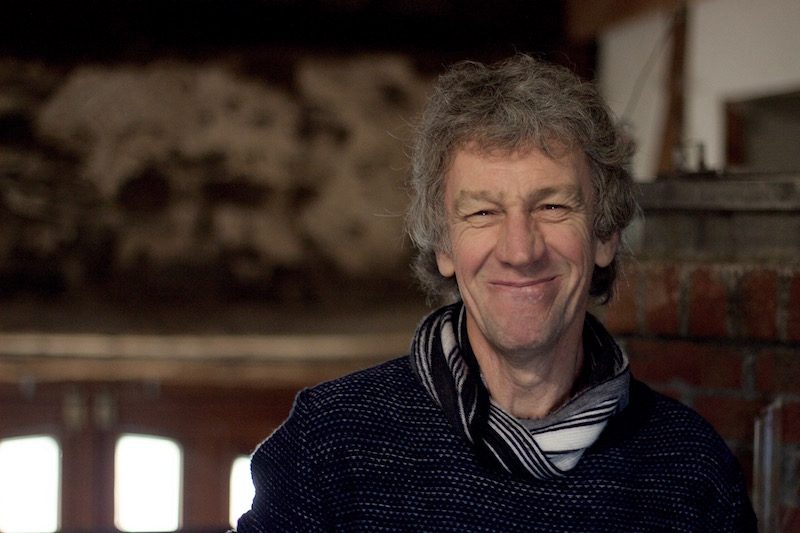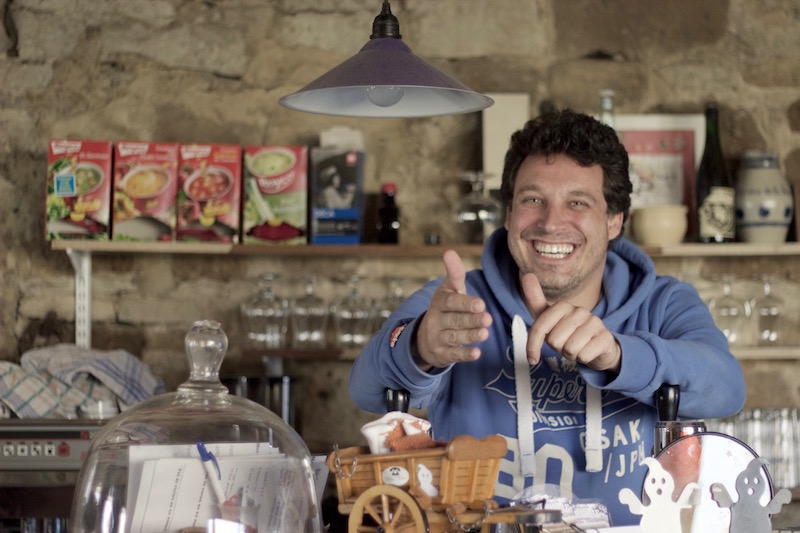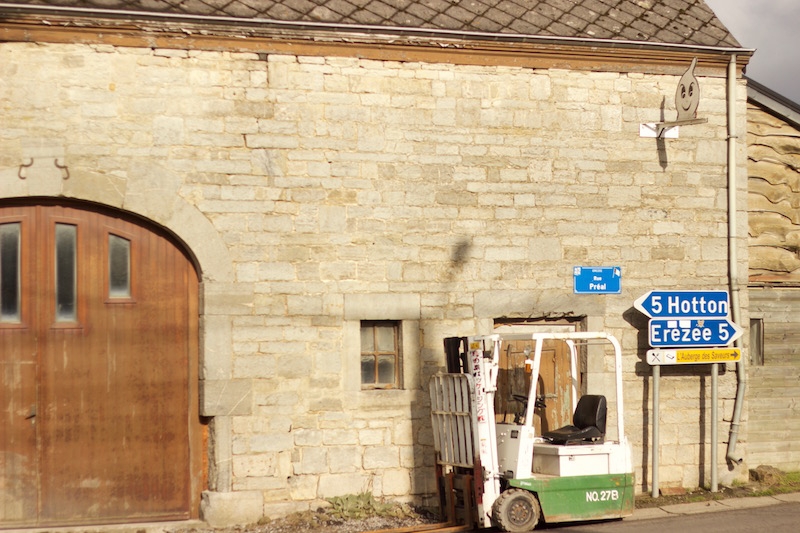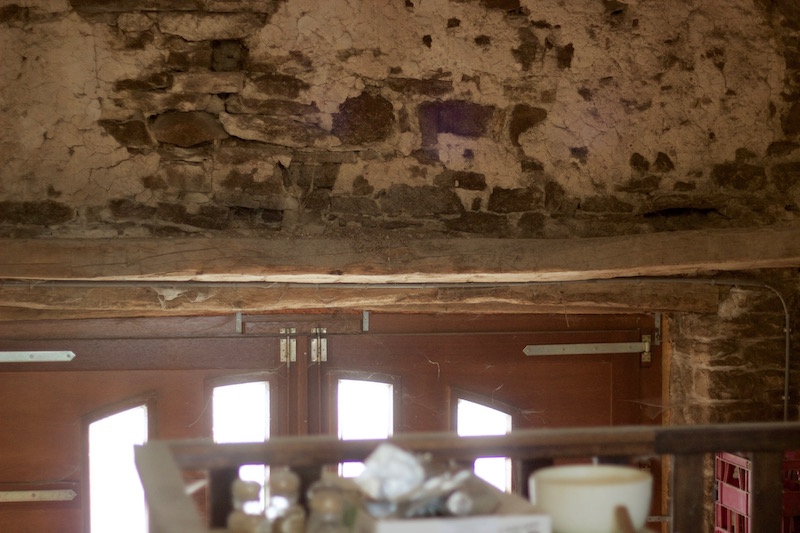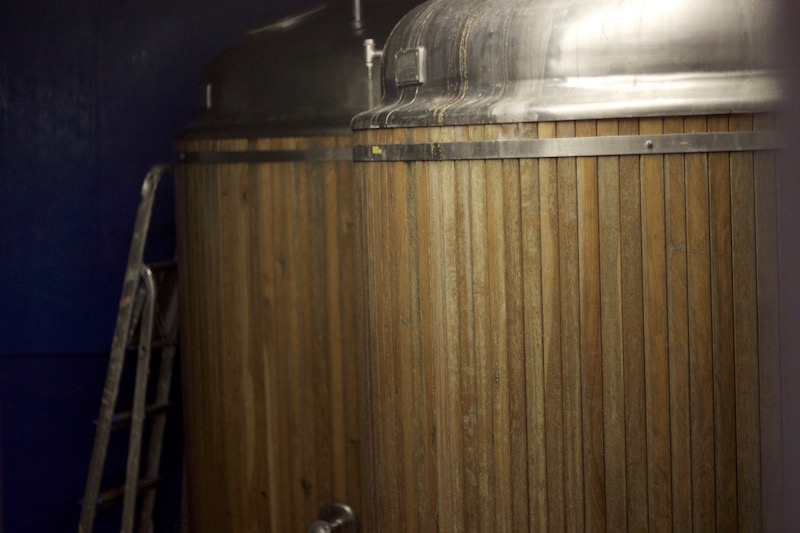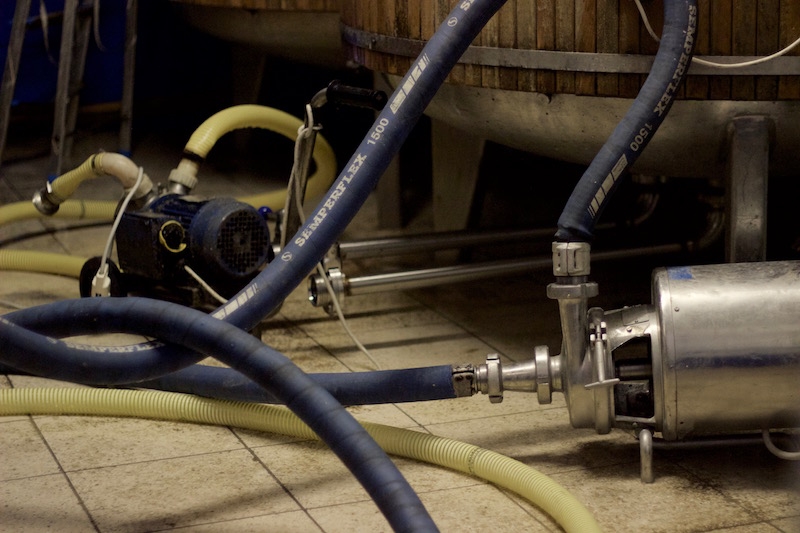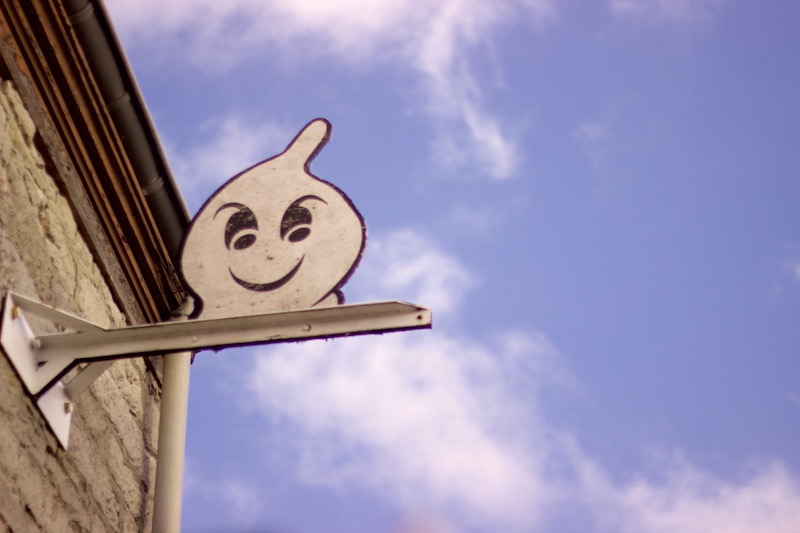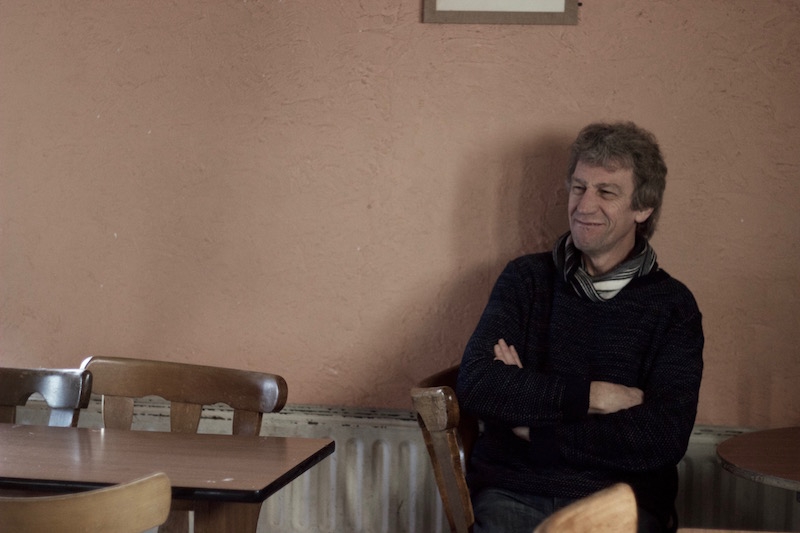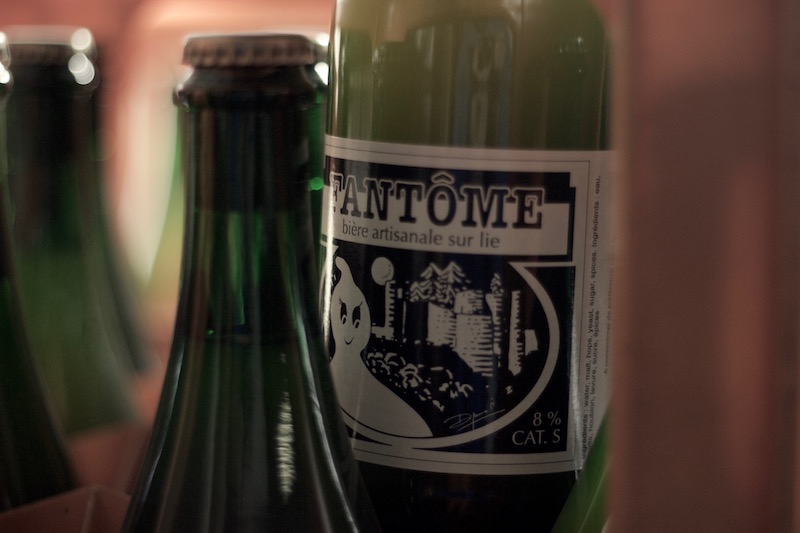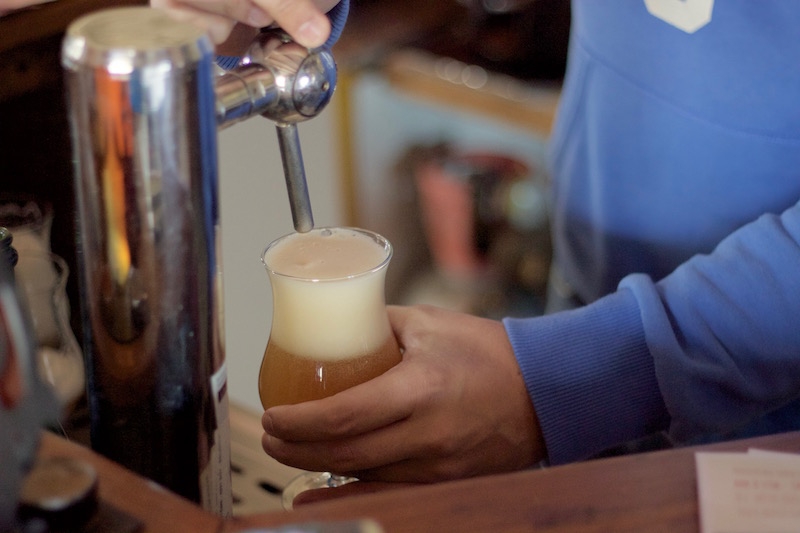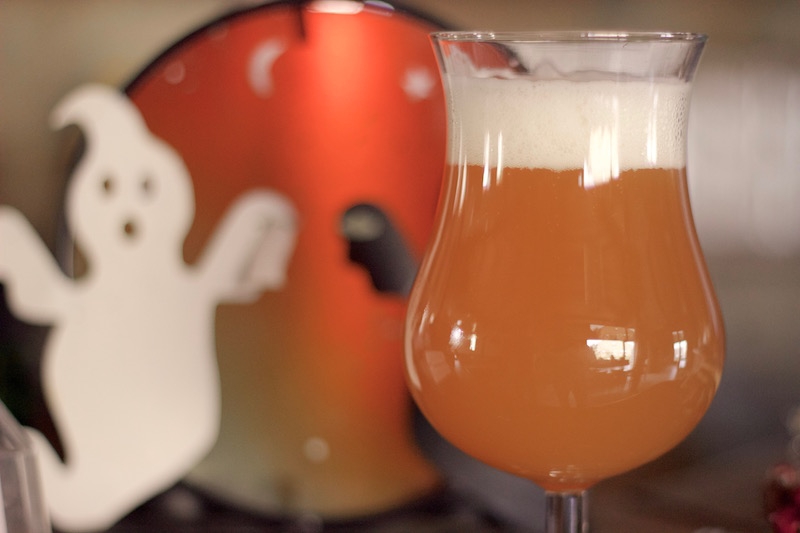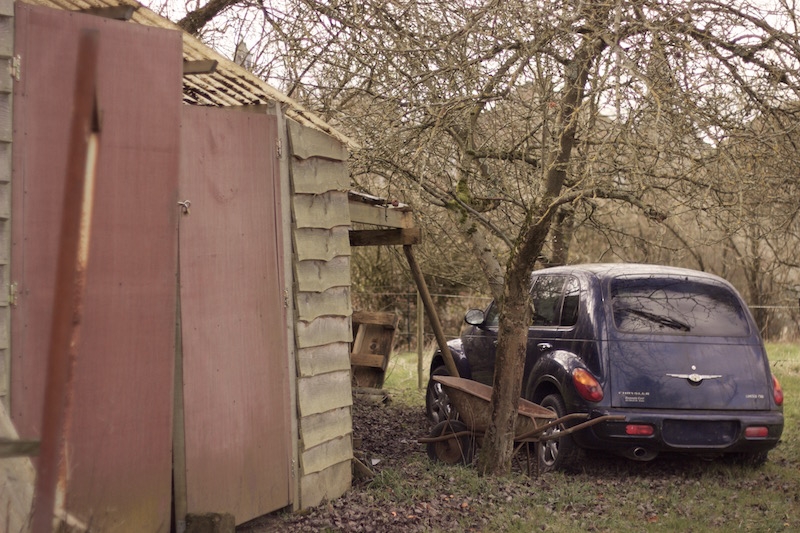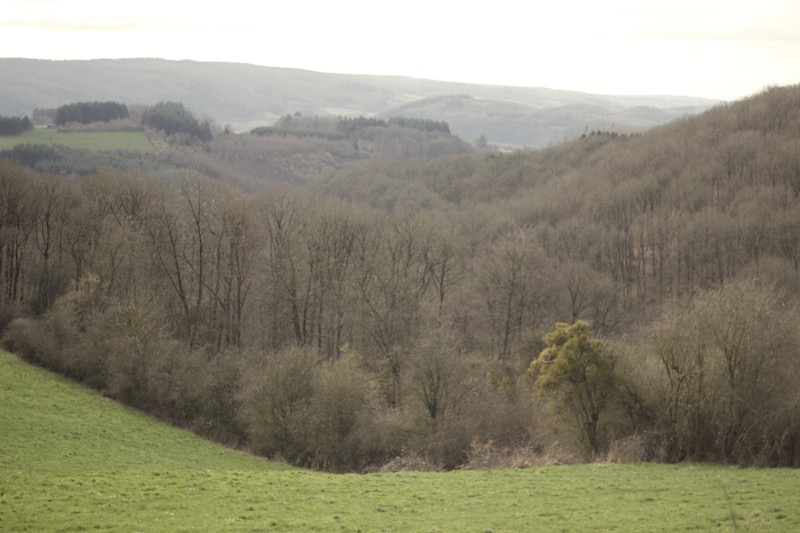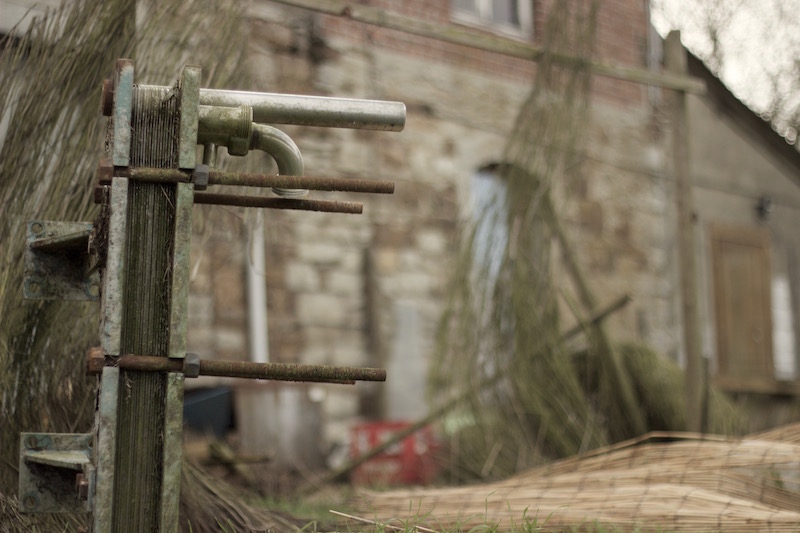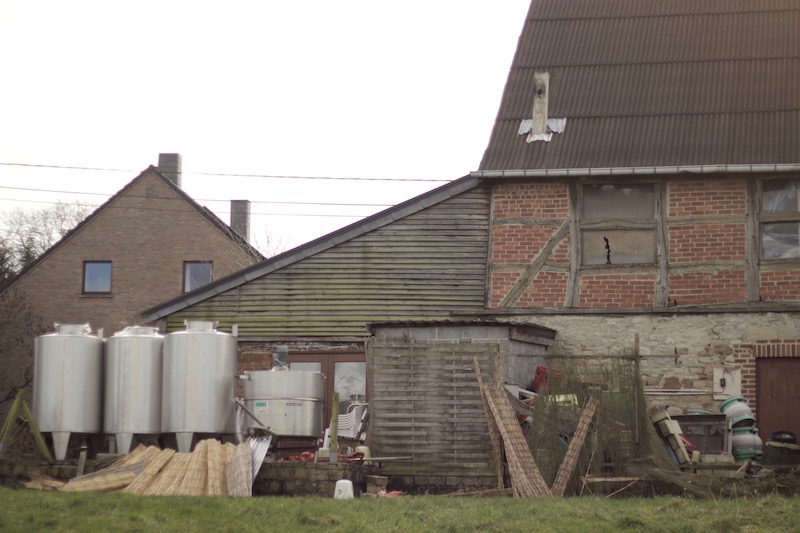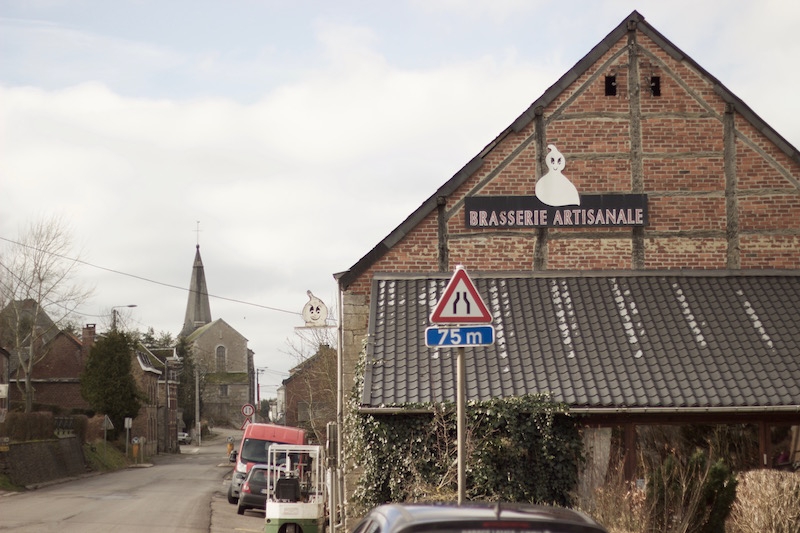Valéry De Breucker pays a visit to Brasserie Fantôme in Soy, Belgium on a short trip home from Brazil, where he has been living for the past 5 years.
“In September last year I came to this brewery with a group of beer lovers from Brazil,” he says. “We tasted the beers, enjoyed the countryside and got to know Dany Prignon, the brewer. When I left Belgium after that trip and went back to Brazil, I was homesick for the very first time. I thought to myself, it’s time to come back.”
Valéry is now back living in Belgium and working part-time at Brasserie Fantôme with Dany, assisting with brewing tasks and learning the trade. “When I initially left home, I hated Belgium,” says Valéry. “But I’ve fallen in love with it again. I actually rediscovered Belgian beer when I lived in Australia for 7 years and in Brazil I started homebrewing for the first time. When I met Dany on that trip I was living in São Paulo. To come back and work with him is special. This is what I want to do.”
BRASSERIE FANTÔME
Valéry discovered Brasserie Fantôme in Brazil because it has somewhat of a cult following there – as it does in the UK and in Scandinavia – evidenced by ravenous import markets and fanatical praise from reviewers in those countries on online rating sites.
Despite this cult status internationally however, Fantôme is relatively unknown in Belgium, regarded by beer geeks as a curiosity and by locals who have heard of it as an oddity. Maybe that’s down to Fantôme exporting more than 90% of what it produces to other countries. It’s extremely difficult to find bottles here in Belgium. What foreign beer lovers see as eccentric practices and mystery yeast, Belgians see as at best, whimsical and at worst, wildly inconsistent. If Valéry had stayed in Belgium and never gone to Brazil, he might never have discovered Fantôme.
REGIONAL PROMOTION
Dany Prignon started the brewery almost 30 years ago with his father. He had worked in the local tourism services for years and wanted to create a local product. “I was sick of seeing products promoted as from the ‘terroir’ but with a label that says ‘Made in Germany’ or made in other countries,” says Dany. “I wanted to do something for the area. I wanted to do something local. My Dad wanted to start making chocolate but I thought we could make beer.”
Dany’s father had just retired and together they used their local contacts to accumulate whatever brewing equipment they could. “My old mash tun which we now use as a hot liquor tank is from La Chouffe,” says Dany. “The current mash tun is from Du Bocq. The lauter tun I made by hand.” It’s a 20-hectolitre system with only 5 fermenters (3 of 20 hectolitres and 2 of 10 hectolitres).
The bashed up brewery system fits snugly between rickety wooden stairs and dusty stone walls in a modest agricultural building on the main road through Soy. It’s a peaceful village in a remote part of Belgium’s Luxembourg province, with stunning countryside views and a charmingly sluggish pace of life.
A cartoon representation of a ghost hangs on the outside of the farmhouse building as well as being affixed to all of the bottles, the symbol and name of the brewery deriving from a legend in nearby La Roche-en-Ardenne in which a dead Countess is said to walk amidst the ruins of the town’s castle.
DANY PRIGNON
“Dany is not a PR guy,” says Valéry. “He’s a mad scientist.” You might expect to encounter a kind of Doctor Emmett Brown, an eccentric recluse, but Dany is shy, affable and self-effacing. Perceptions of him as a ‘genius’ or an ‘artist’ have snowballed in the countries to which he exports his beer and stem perhaps from a series of equally fascinating contradictions.
In a business, for example, where timing and structure are important for production, he seems to live by his own ever-changing clock, brewing when and what he wants and operating the brewery on an impulse.
Speaking with him face-to-face in anything other than French can be frustrating, yet online, he’s very active on social media websites with a surprisingly good grasp of English.
And it’s odd that as the owner and production manager of a brewery, he doesn’t even drink beer. “I don’t like it,” he says, as if this assertion were completely normal. “I taste it, but I prefer soft drinks.”
The fanatical interest in Brasserie Fantôme clearly also stems from the beers, which are generally described as saisons and which sometimes incorporate ingredients rarely used in beer. The ‘Pissenlit’ – which literally means ‘wet the bed’ – is brewed with dandelions handpicked by Dany in the fields beside the brewery. The ‘Magic Ghost’ is a Belgian ale brewed with green tea. The ‘Blanche Pamplemousse’ is a witbier brewed with grapefruit. Brasserie Fantôme have over 100 different beers in their back catalogue, many of which are brewed once and never repeated. Dany has a passion for esoteric seasonals and a habit of experimenting with variations on his classic Fantôme.
What these beers do have in common is a very characterful yeast profile and an unpredictable carbonation. “Dany’s nephew is a chemist,” says Valéry. “He’s secretive about his yeast. He got the yeast from his nephew. He doesn’t use written down recipes. There’s no brewing software. It’s all in his head.” Any questions about yeast are dismissed by Dany with a knowing smile and a charismatic roll of the head which naturally forces the conversation to move on.
STATE-SIDE
The biggest markets for Dany in the States have historically been California, New York, Massachusetts and Illinois, but there’s been growth across America in recent years. “The beers are all equally popular for the most part,” says Christian Gregory of Brasserie Fantôme’s U.S. importers, the Shelton Brothers. “But anytime Dany does a new or one-off beer that isn’t part of the regular line-up, we tend to get even more demand. I think it’s safe to say that Fantôme has always been regarded as a little inconsistent, but over the last few years the quality has gotten better and better and folks in the market are realizing that.”
Dan Shelton, Co-founder and Owner of the Shelton Brothers, discovered Dany in 1997 through a book by John Woods and Keith Rigley called ‘Beers of Wallonia: Belgium’s Best Kept Secret’ at a time when he was scouring Europe for small breweries that were making interesting beer. When he first took Brasserie Fantôme back to the States, he had real difficulty selling it. “Dan left a full pallet of the beer out in front of his Brooklyn apartment hoping people would just take it,” says Christian. “Eventually some sort of story broke about Fantôme and he suddenly had a ton of demand, so he went back to where he had left the pallet and found that most of the cases were still there. He tried the beer and it was still good, so he took the pallet back and sold through it.”
SEEING GHOSTS
The aura surrounding Fantôme and the desire to brew esoteric beers rubs off on those who come to visit. Texas farm brewery Jester King – who usually share all their recipes and techniques with their online followers – brewed ‘Fantôme Del Rey’ with Dany when they came to Soy. “In deference to the mystery and intrigue that has always shrouded Fantôme,” they wrote on their website, “we’re going to be a little secretive as to how Fantôme Del Rey was made.”
Garrett Crowell, Head Brewer at Jester King, had a first-hand look at Dany’s fermentation during this collaboration. “When we brewed with him, he was hesitant and secretive about his yeast, simply saying that he uses a few different kinds during the course of a year,” remarks Garrett. “What is truly beautiful about Brasserie Fantôme is the inadvertency of fermentation character. Many of his beers develop peripheral yeast character and acidity, likely from lactic acid producing bacteria. These are certainly micro-organisms present within the facets of his stonewalled brewery, lending a true sense of place to his beer without deliberation.”
It seems you don’t easily forget brewing in Soy. “Our experience brewing with Dany at Fantôme was most remarkable,” says Garrett. “The way he operates his brewery is a snap shot of a different time. It’s a refreshing change to see a saison brewer relying on intuition and ingenuity rather than the immediacy of technology. Every piece of equipment at Fantôme is operated by the loose precision of gut feeling, rather than rigid science.”
Hill Farmstead from Vermont – who were voted as the best brewery in the world by ratebeer in 2015 – came to Soy in 2012 to brew ‘5 Sciences’, a beer with freshly squeezed lemon juice and zest as well as the addition of numerous cartons of supermarket fruit juices and unspecified herbs and spices. Last month, Arizona Wilderness Brewing Co. visited Soy to brew with Dany and Valéry at Brasserie Fantôme. “We brewed a collaboration with ingredients coming straight from the Arizona Desert,” says Valéry.
Last year, it was the turn of Lauren and Joe Grimm from Grimm Artisanal Ales, a Brooklyn-based nomadic brewery who gypsy brew in facilities owned by others. “The doorways are so short that we kept hitting our heads as we walked through,” says Joe. “The system has been patched up in various ways over the years. The seams are showing but there are things that it is capable of – like complex step mashing – that most brand new breweries in the US can’t even do. We feel like some of the famous Fantôme character is the result of his unique brewing equipment.”
Despite the fact that Dany does not come from within the mainstream of the Belgian brewing world, he’s refreshingly Belgian in his irreverence for style nomenclatures. Together they brewed an ale with a pronounced yeast character and a herbal quality, a beer they named simply, ‘Fantôme Grimm’. “Dany doesn’t really like to use the word ‘Saison’,” says Lauren. “He referred to what we were making simply as a ‘special beer’. It’s a pale beer, around 8% ABV. We brought herbs and spices over with us to use.”
COLLABORATIVE CURIOSITY
There’s a level of bemusement on Dany’s behalf about why all these high profile brewers would come to his small run-down brewery in the middle of nowhere. Perhaps there’s an ignorance on his part of the commercial power of his brand, the strength of which lies in its authenticity and quirk. “They were fun,” says Dany. “But with some of those collaborations, I didn’t even taste the final beers.”
He’s equally as bemused by some of the reviews of his beers online. “I read some of the stuff people write on ratebeer,” he says. “Where do people come up with those descriptions of my beer?”
FOREVER IN SOY
Valéry is brewing with Dany twice a week now, trying to settle back into Belgium and to help ease the burden of production for his new friend. At the minute he makes the two-hour journey from Brussels to the brewery on brew days, although he’s looking for somewhere close-by to live. Brasserie Fantôme will always be here in Soy.
“Before we left, we told Dany that he should come visit us in the U.S.” says Joe of the Grimm collaboration. “He said that it was impossible because he never wants to leave the countryside where he makes his beer. He hasn’t even gone to Brussels in a long time. He said there’s too many people.”
Even if he was to visit the U.S., he won’t be drinking any of the exciting offerings from breweries in America. He doesn’t like beer.


